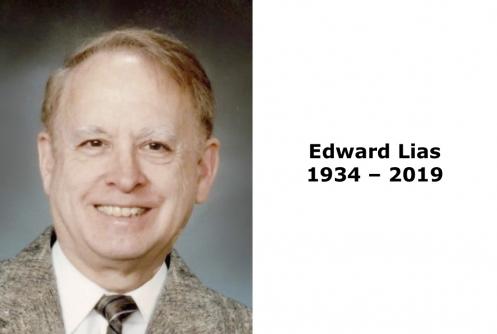In memoriam: Edward Lias: 1934 – 2019

We are saddened to announce the passing of Edward J. Lias, 85. Dr. Lias co-authored American Literacy Council's Dictionary of simplified American spelling (1986) with Edward Rondthaler. More accurately Lias was ALC's software secret weapon, able to digitize 40,000 English words — alphabetically or phonetically. He developed, without fanfare, ALC's literacy software program Soundspel. Lias was surrounded by family and died peacefully from complications following a stroke.
Born on Jan 9,1934 in Pittsburg, PA to Wilfred Lias & Laverne (McIntyre) Lias he married Zelma (Airgood) Lias, Jan 3, 1954 in Punxsutawney, PA. In addition to spouse Zelma, he is survived by his brother Thomas Lias, Morgan, GA; his daughter Susan (Lias) Manges, Bloom, PA; son Stephen Lias, Naco, TX and six grandchildren.
Edward received his undergraduate degree from Nyack Coll, master’s degrees from Gordon Conwell and Columbia U, and a PhD from NYU where his 1979 dissertation (exploring the future of PC's) was the first there created via word processor.
An entrepreneur & inventor Lias patented a pendulum-driven drawing device in the 60's that produced graphic art used for everything from Hollywood film posters to a UN postal stamp! His skills as programmer, writer, business-manager, and public speaker were put to great use via his VIP positions at 'Sperry Unisys' where he pioneered the rise of mainframe & personal computers. Among Lias' other publications & articles was his book Future Mind, released in 1982 by Little, Brown and Company.


